For Iranian crypto traders, using a VPN isn’t a luxury-it’s a necessity. But every time they connect, they’re playing a high-stakes game where one misstep can mean losing everything. In 2025, the risks have skyrocketed. What used to be a simple workaround-hiding an Iranian IP address to access Binance or Kraken-is now a dangerous gamble. Exchanges don’t just check your IP anymore. They watch your behavior, your device, your transaction timing, even how you type. And if they spot something off, your account freezes. Your coins? Gone. No warning. No appeal.
Why Iranians Need VPNs to Trade Crypto
Iran’s government doesn’t ban cryptocurrency outright. But it makes trading it legally nearly impossible. The Central Bank of Iran blocks all domestic bank transfers tied to crypto. No Iranian bank will process a payment to Binance. No local payment app will let you send money to a foreign exchange. That’s why traders turn to VPNs-to bypass these restrictions and reach global platforms. But it’s not just about access. It’s about survival. In 2025, Iranians moved $3.7 billion in crypto between January and July. Most of it-over 87%-flowed through Nobitex, the country’s biggest local exchange. But even Nobitex isn’t safe. In October 2024, blockchain intelligence firms started hunting Iranian wallet addresses. They launched bounty programs offering cash rewards for identifying wallets linked to Nobitex. The result? Thousands of accounts were frozen. People lost access to their coins overnight.How Exchanges Detect Iranian Users-Even With a VPN
Many think a good VPN is enough. It’s not. Modern exchanges use layered detection. Here’s how they catch you:- IP address leaks-If your VPN drops for even two seconds during a trade, your real Iranian IP is exposed. Exchanges log that instantly. Account suspended.
- Device fingerprinting-Your browser, screen size, installed fonts, even the time zone your OS is set to-all of it creates a unique digital signature. Iranian users often have the same device configurations. That’s a red flag.
- Transaction patterns-Iranian traders tend to send small, frequent transfers. They use TRON (TRC-20) tokens because they’re cheap and fast. Over $2 billion of Nobitex’s $3 billion in 2025 moved through TRON. That’s a pattern blockchain analysts now track like a heartbeat.
- Behavioral analytics-When do you log in? What time of day do you withdraw? Do you trade only after midnight? Iranian users often follow similar routines. AI models spot these patterns faster than any human.
The Underground Economy: Fake IDs, Foreign SIMs, and IBANs
When exchanges started locking accounts, Iranians didn’t give up. They built an underground economy to fight back. Now, you can buy full identity packages on Telegram channels or dark web forums. For $200-$500, you get:- A fake foreign passport or ID (often from Georgia, Armenia, or Turkey)
- A foreign mobile number for SMS verification
- A foreign bank account (IBAN) to receive withdrawals
- A step-by-step guide to pass KYC on Binance, Bybit, or OKX
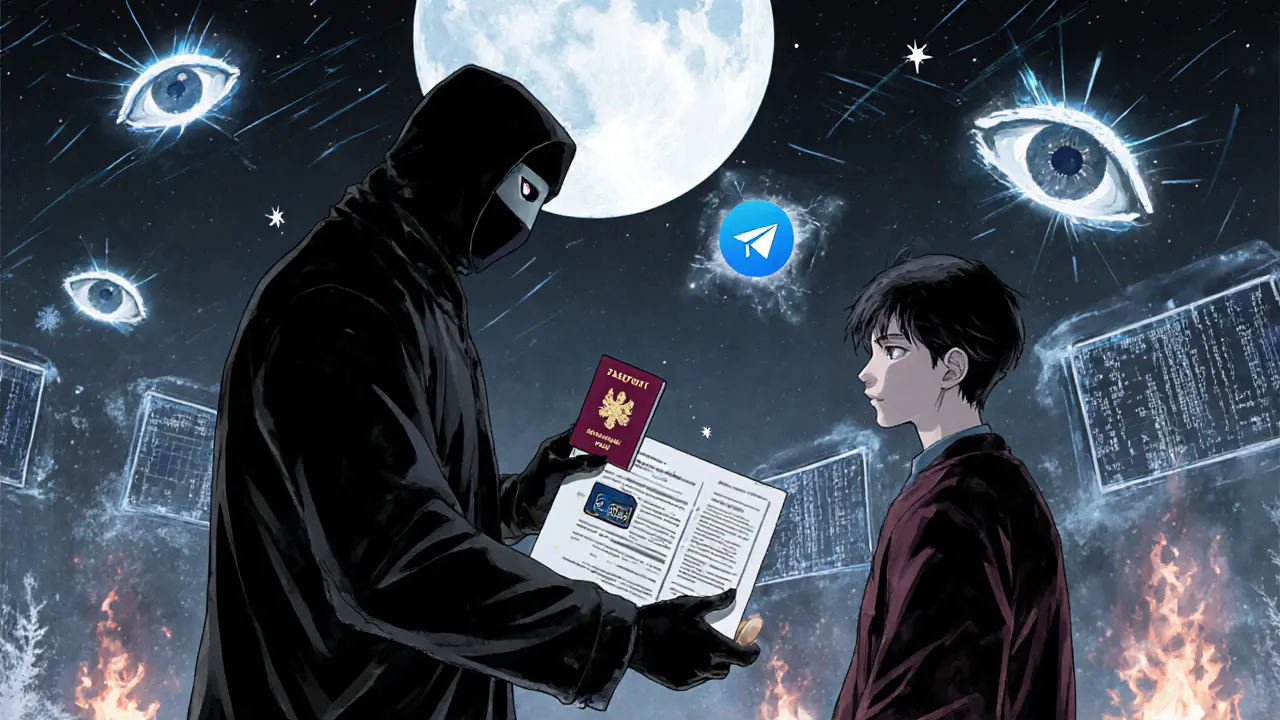
The Nobitex Breach and the Collapse of Trust
Nobitex used to be the safe harbor for Iranian crypto users. It didn’t require ID verification. You could deposit Iranian rials, buy Bitcoin, and withdraw in USDT-all without leaving the country. But in early 2025, security researchers discovered Nobitex was sharing user data with Iranian authorities. It wasn’t just a leak. It was a surveillance tool. The exchange was handing over IP logs, phone numbers, and transaction histories to Iran Cyber Police (FATA). That’s when the exodus began. Traders who once trusted Nobitex rushed to foreign exchanges-using VPNs, fake IDs, everything they could. But the damage was done. Trust in local platforms collapsed. Even now, 0.9% of Nobitex’s volume is tied to illicit activity-same as global averages-but the stigma remains. Every Iranian transaction is now under a microscope.Why the Numbers Are Plummeting
Crypto inflows to Iran dropped 50% in June 2025 compared to the same month last year. In July, the drop hit 76%. That’s not because people stopped caring. It’s because the tools aren’t working anymore. Exchanges have tightened rules. Binance now requires live facial verification. Kraken blocks Iranian IPs at the network level. Even if you use a premium VPN, you’ll often hit a wall: “Account restricted due to geographic risk.” And when you do get in, the risk doesn’t end. Withdrawals are monitored. If you send $5,000 to a wallet that’s been flagged before, your account gets locked. If you send to a TRON address linked to Nobitex, you’re flagged. If you use the same device you used last year, you’re flagged.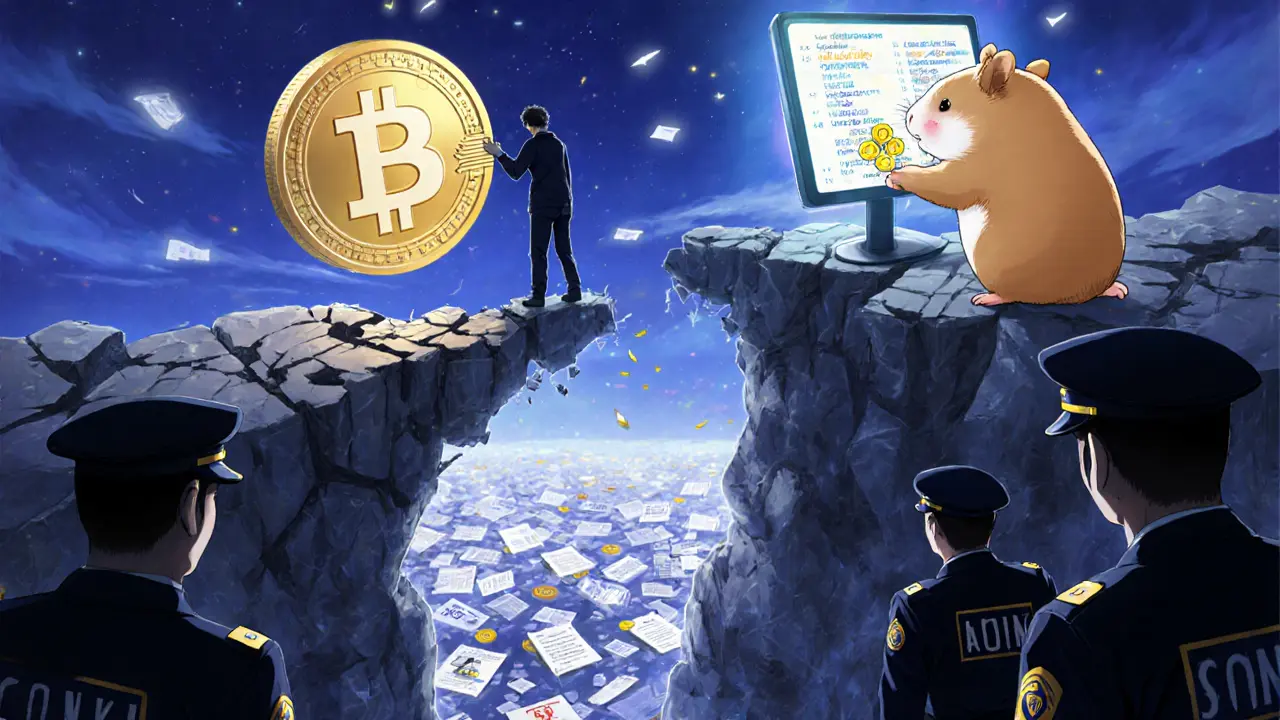
What’s Next? Hamster Combat and the Rise of Alternative Earning
Some traders are giving up on exchanges entirely. Instead, they’re turning to apps like Hamster Combat-a mobile game where you earn small amounts of crypto by tapping a screen. It’s not a replacement for trading. But it’s a way to earn without triggering surveillance systems. Others are moving to decentralized peer-to-peer platforms like LocalBitcoins or Paxful, where you trade directly with another person. But those are risky too. Scammers are everywhere. And if you’re caught, you’re not just losing money-you’re risking legal trouble.The Real Cost of Using a VPN in Iran
The biggest cost isn’t money. It’s fear. Every time you open your exchange app, you wonder: Is this the day they catch me? Is this the day my account vanishes? Is this the day the police knock on my door? There’s no safety net. No customer support. No insurance. If you’re caught, you’re on your own. And even if you’re not caught, the stress is constant. Sleepless nights. Overthinking every click. Avoiding public Wi-Fi. Never using the same device twice. And for what? To hold Bitcoin that might be worth $100,000 next year-or locked forever in a frozen account.Can You Still Trade Crypto in Iran Using a VPN?
Technically, yes. But it’s getting harder. Every month, the tools get more advanced. Every month, the risks get higher. If you’re still trying:- Never use a free VPN. Use only paid, audited services like Mullvad or IVPN.
- Use a different device for crypto trading-never your phone or laptop you use for work or family.
- Don’t use TRON. Use Bitcoin or Ethereum. Less traceable.
- Withdraw in small amounts. Large transfers are automatic red flags.
- Never reuse an IBAN or ID. Each one has a lifespan. Use fresh ones.
- Assume every transaction is monitored. Act like you’re being watched-because you are.
Can Iranian traders still use Binance with a VPN in 2025?
Binance blocks Iranian IPs at the network level and requires live facial verification for KYC. Even with a premium VPN, most Iranian users are detected through device fingerprinting or behavioral patterns. Accounts are frozen without warning, and recovery is nearly impossible. Binance no longer accepts Iranian users, even with fake IDs.
Are free VPNs safe for crypto trading in Iran?
No. Free VPNs are among the biggest risks. Many sell user data, inject malware, or have no encryption. In 2025, over 40% of free VPNs used by Iranian traders were found to leak IP addresses or track browsing activity. Using one is like handing your identity to strangers.
Why is TRON so popular among Iranian crypto users?
TRON (TRC-20) is popular because transaction fees are near zero and confirmations are fast-under 3 seconds. This makes it ideal for small, frequent transfers, which Iranian traders rely on to avoid detection. But because over $2 billion moved through TRON via Nobitex in 2025, blockchain analysts now specifically target TRON wallets linked to Iranian IPs.
What happens if your crypto account gets frozen in Iran?
Once frozen, recovery is almost impossible. Exchanges don’t have customer service for Iranian users. There’s no appeal process. Your coins are locked until the exchange decides to release them-which rarely happens. Many traders lost tens of thousands of dollars after their accounts were flagged for using a VPN or TRON transfers.
Is crypto mining legal in Iran?
Yes-but only under strict government control. The Ministry of Energy issues mining licenses and controls electricity access. Licensed miners can sell mined coins for trade settlement, but individuals who mine without a license face fines or imprisonment. Mining is not a workaround for trading-it’s a separate, heavily monitored activity.

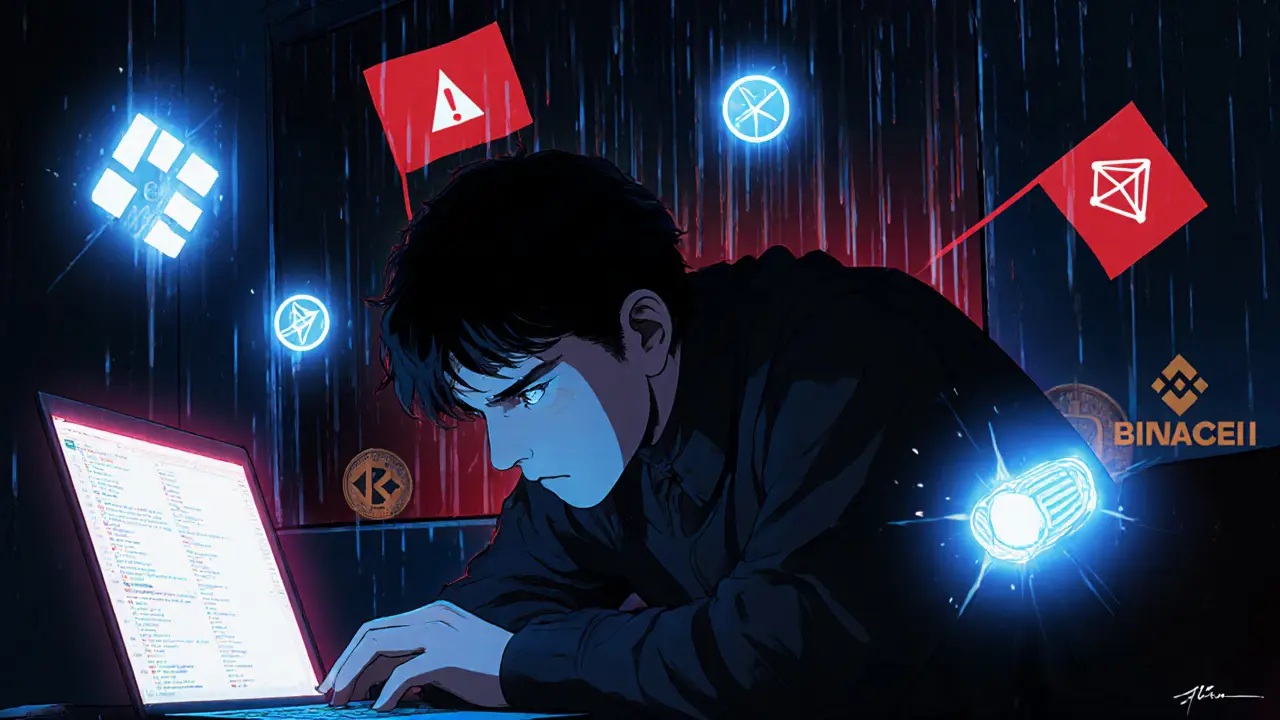
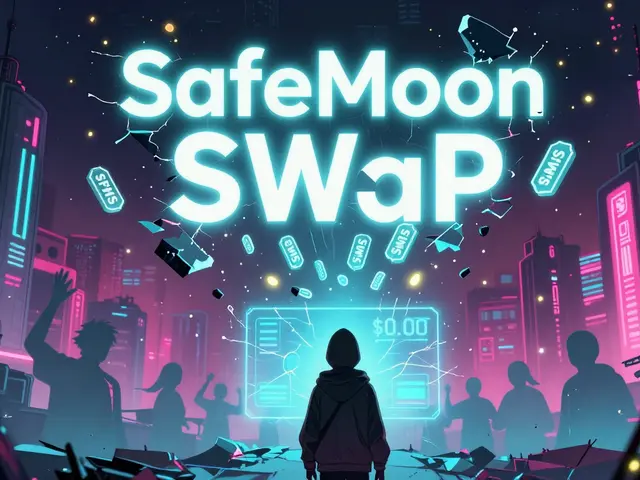
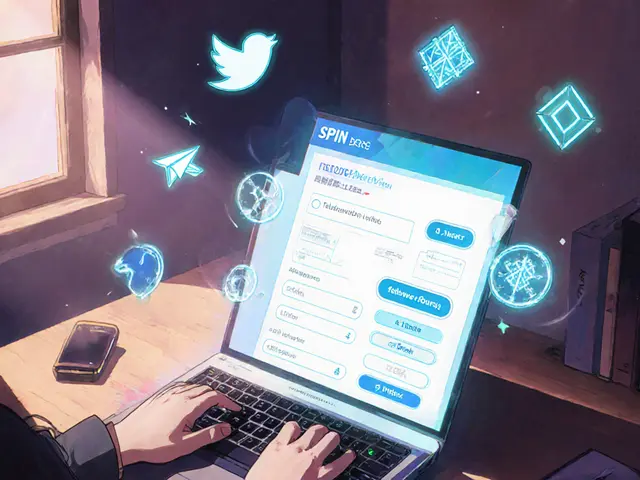
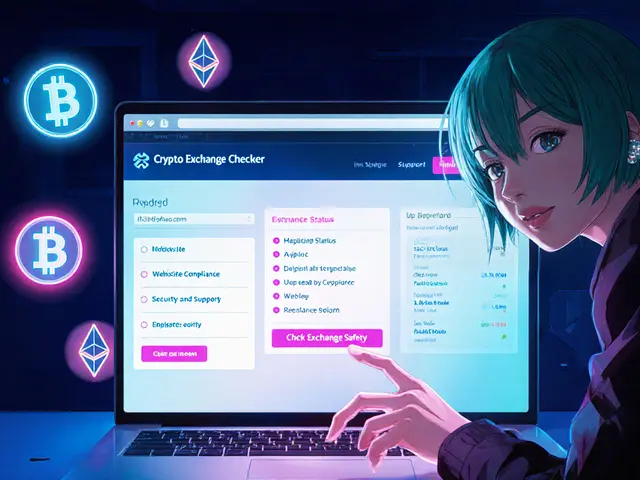


Comments
anthony silva
November 14, 2025 AT 19:11 PMSo let me get this straight - you risk jail, your life savings, and your sanity just to buy Bitcoin because inflation is eating your salary? Sounds like a bad indie movie where the hero wins by accident
And somehow we’re supposed to feel bad for the VPN users when the real villain is a government that turned a currency into confetti
David Cameron
November 16, 2025 AT 17:15 PMIt’s not about crypto. It’s about control. The state doesn’t fear Bitcoin - it fears what happens when people stop trusting the system entirely. When you can’t move your wealth without permission, you’re not living - you’re waiting for permission to exist
And now they’ve turned every transaction into a confession
Sara Lindsey
November 18, 2025 AT 04:51 AMY’all think this is hard? Try being a woman in Iran trying to trade crypto while your brother gets grilled by FATA for using the same router
These people are out here building digital fortresses with duct tape and hope
Respect. Respect. Respect. 🙌
Kevin Hayes
November 18, 2025 AT 22:49 PMThe structural failure here is not technological - it is epistemological. The state has conflated financial sovereignty with national security, thereby criminalizing self-preservation. The use of TRON, pseudonymous identities, and decentralized protocols is not evasion - it is the logical consequence of institutional collapse
The exchange platforms, in turn, have become de facto agents of state surveillance - enforcing geopolitical boundaries under the guise of compliance
Albert Melkonian
November 19, 2025 AT 11:13 AMIt’s important to recognize that these individuals are not engaging in illicit activity - they are engaging in economic survival. The fact that they must resort to fake IDs and foreign SIMs speaks to a systemic failure of both domestic governance and global financial inclusion
We must ask ourselves: who are we protecting when we lock out entire populations from access to decentralized finance?
Byron Kelleher
November 20, 2025 AT 10:50 AMMan I just wanna say - even if you think this is risky or shady - these folks are just trying to keep their money from turning into toilet paper
And they’re doing it with zero support from anyone
So yeah maybe they’re using sketchy tools - but what else can they do?
Cherbey Gift
November 20, 2025 AT 14:02 PMOMG this is literally the plot of Black Mirror meets The Matrix but with more TRON and less Keanu Reeves
Imagine your entire life’s savings being tracked like a TikTok dance trend
And the worst part? The government is the real NFT scammer - they minted fear and sold it to everyone
Also why are we still using IPs in 2025?? Are we in 1998??
Anthony Forsythe
November 20, 2025 AT 17:11 PMEvery time I read this I feel like I’m watching a slow-motion car crash filmed in 4K with surround sound and emotional piano music
People aren’t just trading crypto - they’re trading their future, their sleep, their dignity
And the exchange platforms? They’re not just blocking IPs - they’re erasing lives
One click. One fingerprint. One TRON transaction. And poof - gone. No goodbye. No mercy. Just silence.
And then you wake up and your wallet’s a ghost. And your dreams? They’re still locked in a server somewhere in Singapore
Kandice Dondona
November 21, 2025 AT 14:05 PMThese people are warriors 💪❤️🔥
They’re not hackers - they’re parents, teachers, nurses trying to protect their families from economic collapse
Use a paid VPN. Use a burner device. Don’t use TRON. Small withdrawals.
And if you’re reading this - please share this. Someone out there might need it
Love you all. Stay safe. 🌍🔐
Becky Shea Cafouros
November 22, 2025 AT 19:52 PMSo the solution is to use fake IDs and foreign bank accounts… which are technically illegal
And then you get banned anyway
So what’s the point? You’re just playing Russian roulette with your life savings
And the exchanges? They don’t care. They just want to avoid regulatory fines
So really - who’s the villain here?
Drew Monrad
November 23, 2025 AT 12:27 PMOh please. This is just another Silicon Valley sob story wrapped in blockchain glitter
Iranians are not victims - they’re participants in a global shadow economy
And let’s be real - if you’re using a VPN to bypass sanctions, you’re not a martyr - you’re a circumventor
And if your coins get frozen? That’s called consequences
Stop romanticizing financial rebellion
Cody Leach
November 25, 2025 AT 06:40 AMHonestly the most dangerous thing here isn’t the VPN or the TRON - it’s the assumption that any of this is sustainable
Exchanges are getting smarter. Governments are getting crueler.
There’s no long-term fix here. Just damage control.
And the people paying the price? They’re not the ones writing the rules
sandeep honey
November 26, 2025 AT 23:15 PMTRON is popular because it’s cheap and fast - but you’re right, it’s now the most monitored chain for Iranian traffic
Why not use Monero? Or Zcash? They’re private by design
Why are people still using traceable assets when privacy coins exist?
It’s not the VPN - it’s the asset choice
Mandy Hunt
November 28, 2025 AT 01:31 AMFree VPNs are just the start - did you know the Iranian government runs some of them? They let you connect so they can log everything - your IP, your wallet, your search history - then they sell it to the exchanges
And the exchanges? They use it to freeze accounts
It’s all a trap - every single layer
They want you to think you’re hiding - but you’re just walking into a cage with a fancy lock
alex piner
November 29, 2025 AT 06:58 AMjust use a burner phone and a paid vpn and dont trade after midnight and youll be fine lol